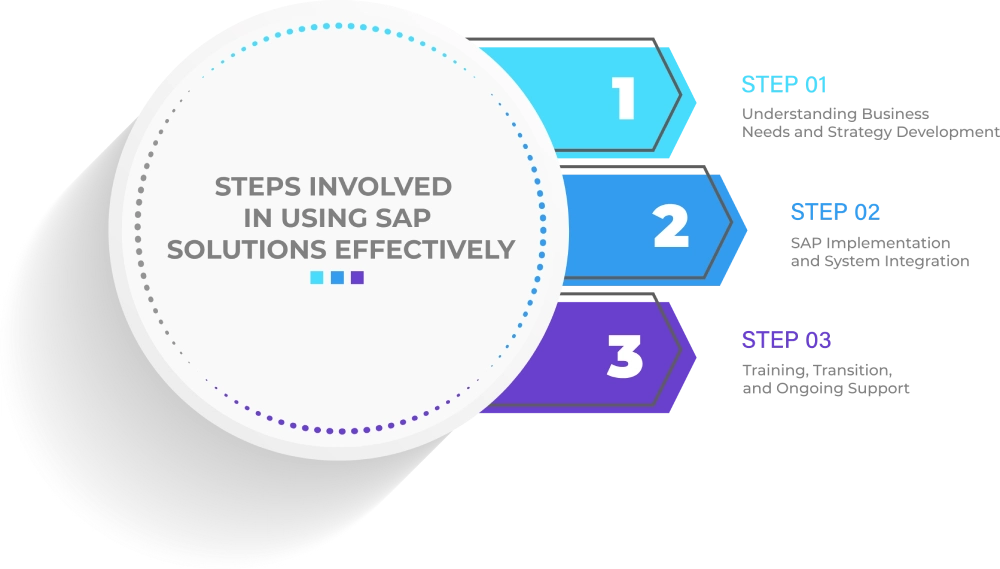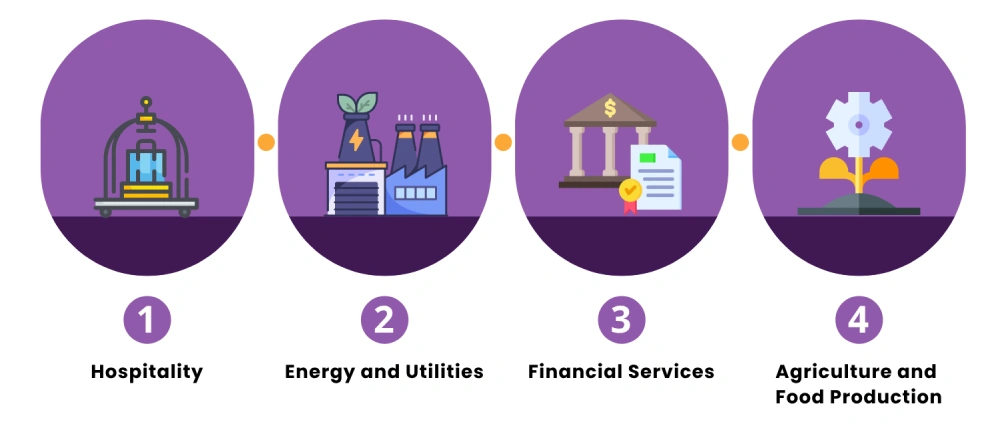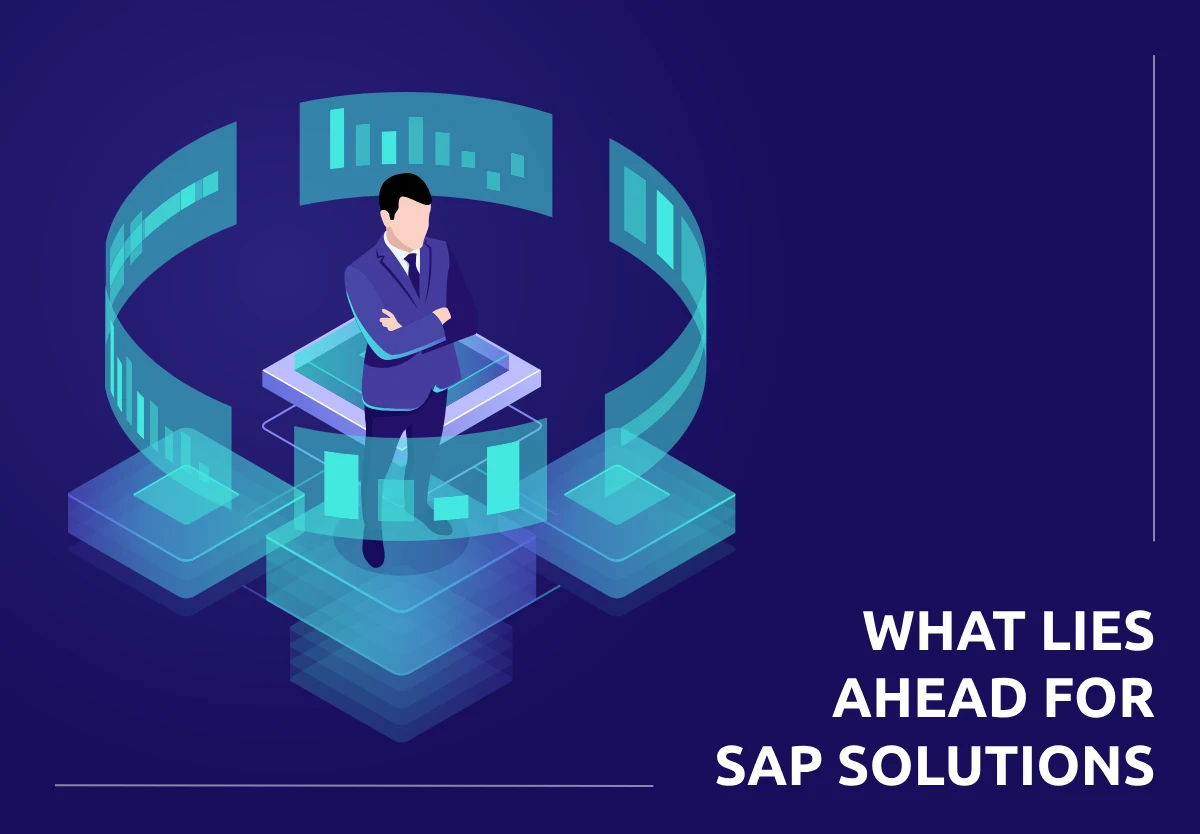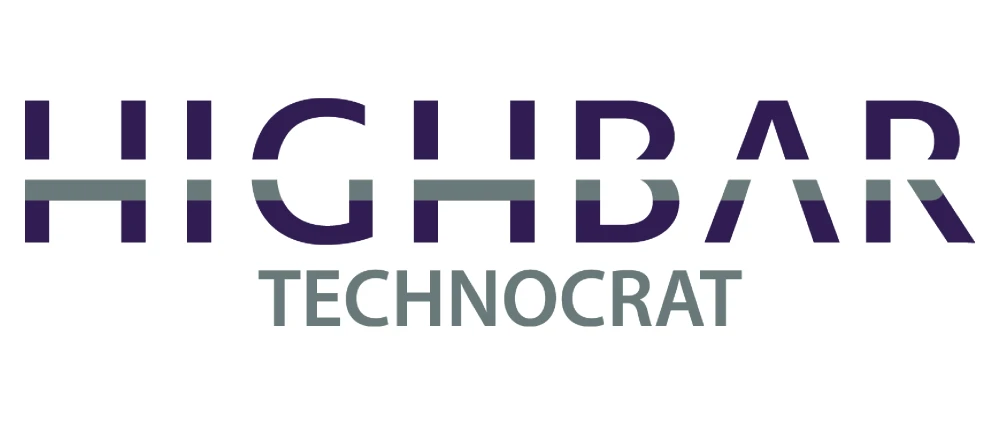Understanding SAP Solutions and its Use in Industries
- Highbar Technocrat
- Blogs
- October 17, 2023
Connect With Us
Understanding SAP Solutions and its Use in Industries
- Highbar Technocrat
- Blogs
- October 17, 2023
Connect With Us

In the modern enterprise of businesses and organizations that have complex system management, SAP solutions, an acronym for Systems, Applications, and Products, stand as the foundation of future transformation. These software applications represent a complete paradigm shift in how businesses oversee their operations. In this comprehensive guide, we dive into the depth of SAP solutions that will assist in understanding the intricate tapestry across specialized domains that cater to precise business requirements

Why is SAP beneficial to all industries?
We can imagine SAP solutions as a versatile toolbox where each compartment has a specialized domain that acts as a strategic instrument for organizations. Beyond the core of the Enterprise Resource Planning (ERP) module, these specialized domains empower businesses to optimize all the departments of their operations.
Enterprise Resource Planning (ERP)
At the core of SAP solutions lies the ERP module. ERP is a vast and interconnected ecosystem that encompasses essential business processes such as financial management, procurement, inventory control, production planning, and human resources management. It acts as the central nerve center, fostering efficiency and uniformity of data across the organization’s landscape.
Customer Experience (CX)
SAP’s Customer Experience solutions redefine how businesses engage with customers and vendors. This also enhances the way they cater to their clientele. Within this domain, modules for sales, marketing, and service offer organizations the tools needed to provide tailored, seamless customer experiences. By effectively managing customer interactions, businesses can increase satisfaction levels among customers and cultivate unbelievable customer loyalty.
Business Intelligence (BI)
We have certainly entered the era of data. All the leading decisions are made today by data insights. SAP’s Business Intelligence solutions present invaluable tools for extracting details that will help businesses scale. BI certainly performs tasks like reporting, analytics, and data visualization capabilities, transforming raw data into a treasure trove of informed decisions. These insights empower organizations to maintain a competitive edge.
Supply Chain Management (SCM)
Successful and well-managed supply chain operations find their optimization through SAP’s Supply Chain Management solutions. This domain needs demand planning, procurement, production, and distribution, which are easily provided by SAP solutions. It provides tools to enhance supply chain visibility, agility, and responsiveness, enabling businesses to meet customer demands efficiently.
Human Capital Management (HCM)
Efficient human resource management stands as a cornerstone of organizational success. SAP’s Human Capital Management solutions simplify HR processes, spanning talent acquisition, onboarding, payroll management, time and attendance tracking, and talent development. These solutions enable businesses to attract, retain, and nurture top-tier talent.
Business Networks and Analytics
SAP solutions extend their reach to specialized domains dedicated to enhancing business networks and analytics. These domains empower businesses to forge effective collaborations with partners, suppliers, and customers, facilitating seamless communication and data sharing. Furthermore, they provide advanced analytics capabilities, enabling in-depth data analysis and forecasting.

What are the steps involved in using SAP solutions effectively?
The implementation of SAP solutions within an organization follows a blueprint that helps improve efficiency and productivity.
- Understanding and Strategy
SAP consultants study and understand the unique requirements and challenges of each business. They then formulate an SAP strategy to seamlessly integrate with the existing workflows of the businesses. The audit and understanding of strategy are the main steps.
- Implementation and Execution
With a strategy in place, selected SAP modules are meticulously configured into the systems with the specific processes that help a business achieve its objectives. Data migration from legacy systems to SAP becomes a pivotal milestone, demanding precise planning and execution. Throughout this process SAP executives make sure data privacy is maintained and there is no loss of data.
- Training and Ongoing Support
A successful transition to SAP necessitates comprehensive training for employees to unlock the full potential of the software. SAP consultants step in to provide the necessary guidance. Post-implementation, they extend ongoing support to troubleshoot issues and ensure uninterrupted software operation.

Which industries have started using SAP solutions?
Many diverse sectors have approached SAP solutions and used its transformative power to help businesses yield tangible results.
- Hospitality
Many leading hospitality chains deal with inefficient customer record management that leads to loss of customers. SAP’s Hospitality Solutions Management has streamlined customer retention marketing flow, reduced the workload by 30%, and enhanced the customer experience.
- Energy and Utilities
Several energy companies struggled with complex energy distribution and escalating maintenance costs. SAP’s utility solutions optimized energy distribution and established predictive maintenance schedules, resulting in a significant 15% reduction in maintenance expenses and heightened customer satisfaction across the board.
- Financial Services
A financial institution faces compliance challenges amid rapidly evolving regulations and burdensome reporting processes. Integrating SAP’s Financial Services solutions automated compliance checks and streamlined reporting, reducing compliance processing time by 40% and bolstering customer trust.
- Agriculture and Food Production
An agricultural cooperative faced inefficiencies in crop management and inconsistent product quality. SAP’s Agribusiness solutions enabled precise crop monitoring and quality control, resulting in a 25% increase in crop yield and enhanced supply chain traceability.
These case studies underscore SAP solutions’ ability to transcend industry boundaries and deliver tangible benefits by addressing unique challenges. From healthcare to energy, finance, and agriculture, SAP’s versatility empowers organizations to thrive within their respective sectors while embracing digital transformation for a brighter future.

What does this conclude for the future of SAP Solutions?
In summation, SAP solutions represent more than just software, they are instrumental tools that empower businesses to excel in the digital age. These solutions streamline processes, enhance customer experiences, enable data-driven decision-making, ensure compliance, and facilitate growth.
The specialized domains within SAP solutions offer organizations the flexibility to address specific business needs with pinpoint accuracy. Whether optimizing supply chains, crafting exceptional customer experiences, or gleaning profound insights from data, SAP solutions provide a versatile and dependable pathway to success.
In the ever-evolving world of business, SAP solutions serve as a guiding compass that paves a path and course toward a future where businesses can confront challenges with unwavering confidence and seize opportunities for growth. With a solid foundation in SAP, organizations can set sail toward a brighter and more prosperous future with conviction.




